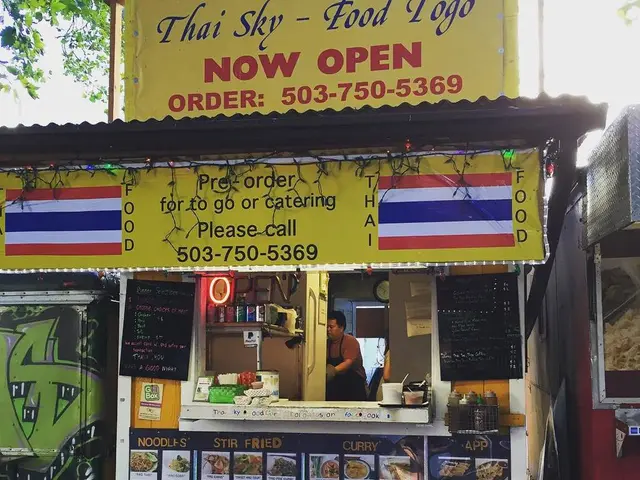Redefining Marketing in Today's Altered Landscape: OB2022ThoughtLeadership Perspective
In the midst of the COVID-19 pandemic, Ghanaian brand marketing strategies have experienced a seismic shift, responding to altered consumer behaviors and attitudes. As we enter the second year of the pandemic, a clearer picture is emerging of these changes' short- and long-term impacts on businesses. Here's a look at three key ways marketers in Ghana have adapted their strategies to thrive in the new normal.
Growing Power of Influencer Marketing
Traditional media channels like television and radio have dominated Ghana's media landscape for decades. However, the pandemic-induced surge in social media use has upended this landscape, with Ghanaians spending more time online as they self-isolate.
Marketers who were previously unaccustomed to utilizing digital platforms quickly learned to navigate social media to reach consumers. Established marketers, in turn, reimagined their use of various social media platforms, from Facebook and Instagram to TikTok. This digital shift led to an unprecedented rise in influencer marketing.
Today, marketers in Ghana value influencers more than ever before, forging strategic partnerships with creators to effectively break through the noise and connect with audiences.
To gain a competitive edge, marketers must consider the following factors:
- Understanding the Consumer: Although age and gender demographics remain important, messages must now align more closely with people's circumstances and values.
- Identifying Relevant Influencers: Follow and monitor the content of potential influencers to ensure their messaging is in line with your brand.
- Right Mix and Number of Influencers: Strike the optimal balance between reach and engagement, bearing in mind that high-reach influencers with low engagement might not provide the desired impact.
Partnerships with influencers play a crucial role in driving e-commerce sales by showcasing products in a more relatable, hands-on manner. Brands typically provide influencers with special discount codes to facilitate measuring their impact on traffic and conversions.
Viral challenges also serve as an entertaining means for product placement, further boosting authenticity while extending brands' reach.
For example, the 'Don't Rush' challenge—where participants transform their appearance using Maybelline New York products and makeup brushes—gave makeup brands an opportunity to demonstrate their ability to enhance and transform looks using iconic products.
The past two years have underscored the versatility and power of influencers as a core marketing component.
The Emergence of Online Shopping
Social distancing customs and stay-at-home orders have forced many consumers to adopt new shopping habits. The rapid adoption of e-commerce shows little sign of abating, with social commerce platforms like WhatsApp becoming increasingly integral to achieving growth.
During the pandemic, brands like Garnier had to reassess their route-to-market strategies, partnering with e-commerce platforms like Jumia to execute digital-only launches, as physical retail locations were forced to close.
Jumia's partnership with Garnier offered customers an exclusive shop-in-shop experience, providing consistent communication and accessible shopping via social media.
E-commerce is here to stay, but without a robust digital marketing strategy to drive traffic to these platforms, marketers will struggle to convert visitors into customers—which could negatively impact sales.
- Streamlined E-commerce Functionality: Easily accessible e-commerce capabilities ensure a smooth shopping experience, reducing abandoned carts.
- Swift, Affordable Delivery: Free delivery promotions can attract customers and encourage purchases.
- Proactive Customer Support: Implementing an online chat tool and providing comprehensive online FAQs help address customers' questions quickly.
- Engaging Visual Content: Short product videos demonstrate the use and unique selling points of various offerings, helping to engage potential customers.
Forging strong partnerships with digital agencies and e-commerce platforms is essential for gaining access to valuable analytics data, allowing marketers to make data-driven decisions and stay competitive in the e-commerce landscape.
Authentic Support for the Audience
The pandemic has challenged brand loyalty, with consumers closely scrutinizing how companies respond to the ongoing crisis. Brands that demonstrate empathy, integrity, and a commitment to supporting their community alike are more likely to maintain or even increase their consumer base.
To stand out in the post-pandemic marketplace, it is essential to align with and communicate your brand's core values. For example, the L'Oreal brand supported hairdressers, key partners who were negatively impacted by the pandemic, by donating items to hairdressing associations during a difficult time.
Successful marketing in a post-pandemic world demands a blend of creativity, data, and empathy. By understanding evolving consumer behaviors and trends, optimizing the use of influencers and e-commerce platforms, and authentically supporting the community, Ghanaian brands can navigate the challenges of this new landscape and emerge stronger.
- Influencer marketing, once uncommon in Ghana, has experienced a staggering growth, with marketers now valuing influencers for their ability to break through the noise and connect with audiences.
- The rise in social media use during the pandemic has led a seismic shift in the media landscape, making digital platforms indispensable for reaching consumers.
- E-commerce, fueled by stay-at-home orders and social distancing, is becoming increasingly integral to business growth, with brands partnering with platforms like Jumia for digital-only launches.
- To drive e-commerce sales, partnering with the right influencers, providing special discount codes, and creating engaging visual content are crucial strategies for marketers.
- Adopting a data-driven approach and maintaining empathy are key for brands to build loyalty in the post-pandemic era, as consumers scrutinize companies' responses to the crisis.
- Collaborations with digital agencies can provide access to valuable analytics data, aiding marketers in making informed decisions and staying competitive in the evolving business landscape, which also includes technology and entertainment sectors.








